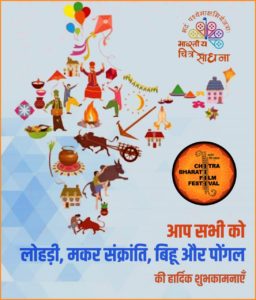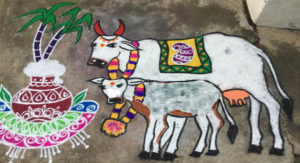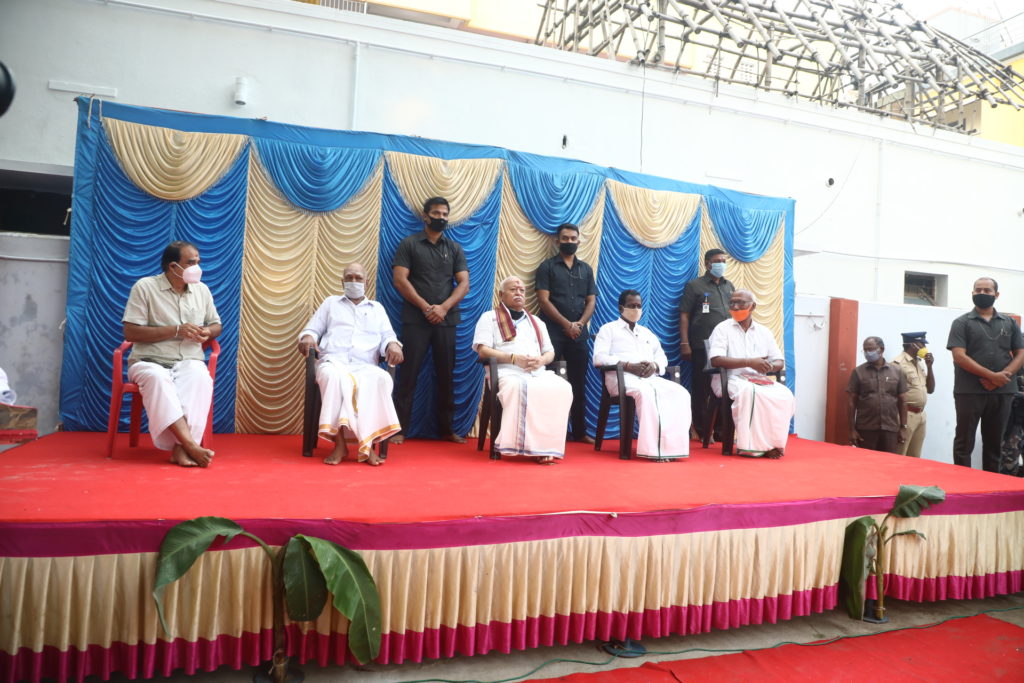
All Hindu festivals have a purpose, history and science behind. Another similarity of Hindu festivals is that it would be celebrated almost in all parts of the country with the same shraddha, pomp, splendour and gaiety, albeit with minor variation in duration of the celebrations.
 Some festivals are celebrated for same duration, cutting across regions and languages of Bharat like Hindu New Year, Shri Krishna Janmashtami, Shri Ram Navaami, etc.
Some festivals are celebrated for same duration, cutting across regions and languages of Bharat like Hindu New Year, Shri Krishna Janmashtami, Shri Ram Navaami, etc.
There are some festivals like Shri Ganesh Chaturthi, Deepavali, Pongal, Durga Pooja, etc., for which duration of the celebrations would differ from region to region on account of various local customary reasons, however celebrated with same devotion and splendour.
For example, Durga Pooja is celebrated by Hindus across Bharat, however in the Eastern part of the country, the duration and significance of the festival would vary. During Durga Pooja, one can witness the pleasant celebratory mood across the states of West Bengal, Odisha and NE States for weeks together and everything else is secondary during that period.
Similarly, Deepavali is celebrated by all Hindus, however, it is celebrated for an extended period of 5 days in the Northern part of the country coupled with Lashmi pujan.
Same is the case with Shri Ganesh Chaturthi. It is a function celebrated by all Hindus, but the state of Maharashtra would steal the show in terms of the importance given to this festival for almost a week.
Pongal or Makar Sankranti is one such Hindu festival, which is celebrated across the country cutting across regions and languages, as “harvest festival”. The word Sankranti (Sam + Kranti) would mean “Change for better” to herald new horizon and new hopes.
Pongal or Makar Sankranti is a religious celebration as well as a seasonal observance to mark the winter solstice, when the shift of the Sun leads to longer days (Uttarayan). This day, also known as Maghi, is a major harvest festival and is dedicated to the Sun (Surya). It also marks the first day of Sun’s transit into Makara raashi (Capricorn zodiac sign).
The festivities related to Makar Sankranti have many names depending on the region. For example, in North, it is called Maghi and is preceded by Lohri. It is called Makara Sankranti and also Poush Sankranti in Maharashtra, Goa, Andhra Pradesh, West Bengal, Karnataka and Telangana. In Central Bharat, this festival is celebrated as Sukarat. Assamese celebrate this as Magh Bihu. Tamizh Nadu and Kerala celebrate this as Pongal. In Gujarat, it is celebrated as Uttaryan and kite flying is organized as a part of this festival.
In Tamil Nadu, this festival is celebrated for 4 days as Bogi, Pongal, Maatu Pongal and Kaanum Pongal as a mark of paying our devotion to Nature and the ecosystem which supports our survival and wellbeing. In addition to cleaning the house, Hindus in Tamil Nadu pray to the Sun and thank Him for providing necessary light and energy for growth and survival. Similarly, the cattle is worshipped on Mattu Pongal for their support in agriculture. This 4 day festivity ends by meeting and greeting relatives on Kaanaum Pongal.
This festival is celebrated by Hindus in Tamil Nadu as a part of their religious belief and in line with Hindus’ basic ethos of co-existing with Nature or even worshipping Nature for mutual survival.
No wonder, the separatists and atheists operating in tandem in Tamil Nadu often make empty attempts to narrow down the scope of this Hindu festival to the region and try their hands in dividing the Hindu soceity. This foolish propaganda continues till today.
However, Hindus of Tamil Nadu have always rejected this foolish idea and have time and again demonstrated their alignment to Sanatan Dharma by celebrating Pongal as a Hindu festival with religious fervour and gaiety.
Any attempt to shrink the scope of this Hindu festival to a particular region or language by the anti-national forces would prove to be an albatross round their neck and their idiotic propaganda would be consigned to the flames of Bogi by Hindus of Tamil Nadu, as always.

